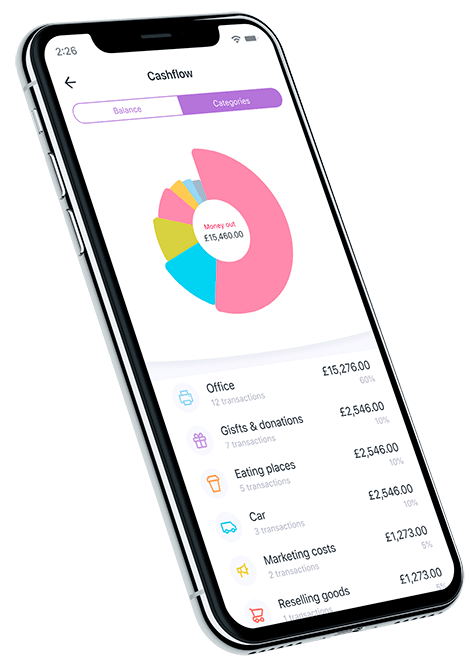Preventing Authorised Push Payment Fraud: A Practical Guide to Safety

Every year, around 200,000 people fall victim to Authorised Push Payment (APP) fraud – a type of scam where individuals are deceived into sending a payment to someone who is not who they claim to be. Fraudsters often pose as the victim's bank or family members.
A report from UK Finance states that "77 per cent of APP fraud originated online and another 17 per cent started through telecommunications networks" [1]. The same report also indicates that purchase fraud is currently the most prevalent type of scam in the UK, as of 2023.
Moreover, the total number of cases increased by 22% to 116,324. The overall losses as of 2023 were close to £240 million. The expected global monetary loss from APP fraud is projected to reach $6.8 billion USD by 2027 (According to ACI Worldwide) [2].
Types of APP fraud
APP fraud involves a fraudster devising a meticulous plan that includes creating a convincing fake offer through impersonation. The common schemes are invoice scams, investment scams, romance scams, CEO fraud, and other impersonations, where the fraudster poses as a trusted entity to deceive victims. This knowledge equips you to be more prepared and vigilant.
Additionally, the fraudster uses a 'mule account' owned by an accomplice or a third party to collect payments, helping to mask their identity. Unlike other forms of financial fraud, where transactions are unauthorised, APP fraud involves the victim being manipulated into believing they are making a legitimate payment. This makes APP fraud particularly challenging to combat.
APP fraud comes in various forms, each designed to deceive the victim in different ways.
Invoice fraud is a type of fraud where scammers impersonate a supplier or contractor, sending a fake invoice that appears legitimate. The victim pays the invoice, unaware that the funds are going to a fraudulent account.
Impersonation fraud involves fraudsters posing as someone the victim trusts, such as a bank official, family member, or even a government representative, convincing them to make a payment or transfer funds.
Purchase fraud occurs when victims are tricked into paying for goods or services that never materialise. This type often affects online shoppers who believe they are getting a great deal on a purchase.
Finally, Investment fraud is a type of scam where fraudsters lure victims with promises of high returns on investments, persuading them to transfer funds to bogus investment accounts.
Stages of APP fraud
There are several stages of APP fraud.
First, the fraudster initiates contact with the victim, often through phone calls, emails, texts, or social media messages. This contact is usually well-crafted and appears credible. Then the scammer engages the victim, building trust and establishing credibility. This stage may involve multiple interactions to make the scenario seem more authentic.
Next, the fraudster presents a compelling reason for the victim to authorise a payment.
Finally, the victim authorises the payment, believing it to be legitimate. The funds are then quickly transferred to an account controlled by the fraudster.
Tips for consumers to protect against APP fraud
- Verify payment requests: Always double-check payment requests, especially those that seem unusual and if the request comes via email, phone, or text message. Contact the supposed requester directly using known contact details, not those provided in the suspicious message.
- Be skeptical of unsolicited communications: If something feels off, trust your instincts and verify the authenticity of the communication.
- Don’t share personal information: Avoid sharing personal or financial information over the phone or email unless you initiated the contact.
- Use Two-Factor Authentication: Use 2FA where possible. This will make it more difficult for fraudsters to gain access.
- Use safe payment methods: If possible, avoid making bank transfers to unknown individuals or entities. Use credit cards or payment services that offer some level of fraud protection.
- Explore fraud protection services: Many banks and financial institutions provide insurance or fraud protection services that can assist if APP fraud occurs. Consider these as an extra layer of security.
- Educate yourself about common scams: Keep up to date with common types of fraud. Knowledge of how these scams work can help you recognise them when they occur.
- Report suspicious activity: If you believe a scam has targeted you, immediately report it to your bank and relevant authorities. Prompt reporting can help prevent further fraud.
What measures Pay.UK is Implementing to prevent APP fraud
As part of the broader strategy to tackle APP fraud, Pay.UK, the operator of Faster Payments, is establishing a compliance monitoring regime across all Payment Service Providers (PSPs) within its scope, including indirect participants. This regime, in accordance with Specific Direction 19 (SD19) and in consultation with the industry, is designed to effectively monitor and enforce compliance with the Faster Payments System (FPS) reimbursement rules.
Pay.UK's approach has been approved by the Payment Systems Regulator (PSR) and includes detailed requirements for data collation, retention, and reporting related to APP scams. From 7 October 2024, Pay.UK will have the authority to collect relevant data from all in-scope PSPs and address any instances of non-compliance. This robust monitoring framework ensures that PSPs adhere to the rules designed to protect consumers from APP fraud, with Pay.UK responsible for enforcing these compliance measures.
1. UK Finance press release – 'Criminals steal over half a billion pounds and nearly 80 per cent of APP fraud starts online' – [https://www.ukfinance.org.uk/news-and-insight/press-release/criminals-steal-over-half-billion-pounds-and-nearly-80-cent-app]
2. ACI Worldwide guide – 'Authorised Push Payment (APP) Scam' – [https://www.aciworldwide.com/app-fraud]
#Amaiz #Banking #Fintech #OnlineBanking #APPfraud #Fines #B2B #B2BPayments #BankingSolutions #BusinessBanking #BankAccounts #VirtualCards #IBAN #PAYUK

Download now!
And you can open a business account with all the support you need in minutes.



